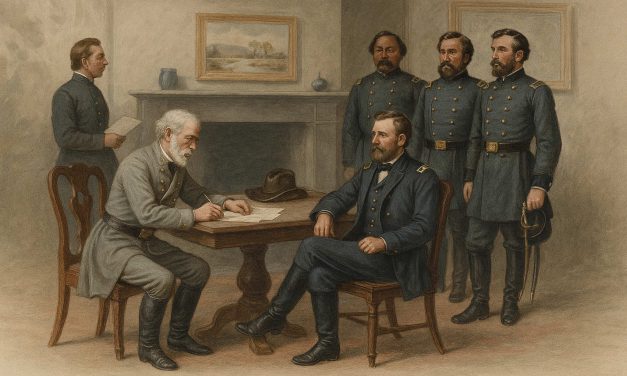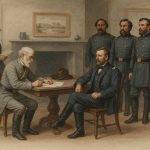Lee’s surrender: Defeat without consequences allowed Confederate ideology to embed itself into U.S. law
On April 9, 1865, General Robert E. Lee surrendered the Army of Northern Virginia to General Ulysses S. Grant of the United States Army at Appomattox Court House in Virginia. Lee’s surrender did not end the war, there were still two major armies in the field, but everyone knew the surrender signaled that the American Civil War was coming to a close. Soldiers and sailors of the United States had defeated the armies and the navy of the Confederate States of America across the country and the seas, at the cost of hundreds of thousands of lives and almost...
Read More















